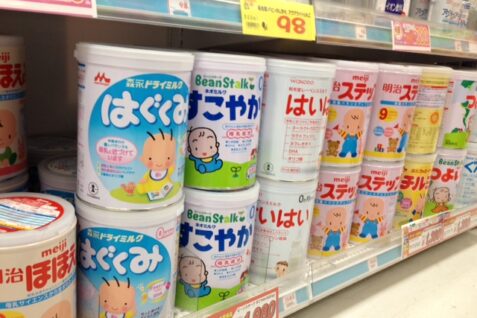
The Science Behind Formula Milk
The arrival of a newborn is a momentous occasion filled with joy and anticipation. As parents, we are dedicated to ensuring the well-being of our little ones, and one of the …
The arrival of a newborn is a momentous occasion filled with joy and anticipation. As parents, we are dedicated to ensuring the well-being of our little ones, and one of the most crucial aspects of infant care is nutrition. Breast milk is often celebrated for its numerous benefits, but in situations where breastfeeding isn’t feasible, formula milk steps in as a reliable alternative. In this article, we delve into the science behind formula milk, exploring its composition and the benefits it offers to growing infants.
Composition of Formula Milk
Formula milk, also known as infant formula, is a meticulously crafted substitute for breast milk. Its formulation is based on extensive research into the nutritional needs of infants during the first months and years of life. While breast milk is undoubtedly a natural wonder, formula milk is designed to provide essential nutrients that closely mimic the composition of breast milk.
- Macronutrients: Just like breast milk, formula milk is rich in macronutrients, including proteins, fats, and carbohydrates. The protein content is usually derived from cow’s milk or soy protein isolate, carefully adjusted to match the protein levels in breast milk. Fats in formula milk are a blend of vegetable oils, providing necessary fatty acids for brain development and overall growth. Carbohydrates, primarily in the form of lactose, mirror the carbohydrate content in breast milk.
- Vitamins and Minerals: Formula milk is fortified with a wide range of vitamins and minerals essential for the infant’s growth and development. These include vitamin D, calcium, iron, and zinc. Fortification ensures that even if the baby’s intake is less than optimal, they still receive the necessary nutrients for their health.
- Nucleotides: Nucleotides are the building blocks of DNA and RNA, and they play a critical role in various physiological processes. Formula milk is enriched with nucleotides to support the development of the immune system and gut health.
- Prebiotics and Probiotics: To promote a healthy gut flora similar to breastfed infants, some formula milk include prebiotic fibers and probiotic strains. These components aid digestion, boost the immune system, and contribute to overall well-being.

Benefits of Formula Milk
While breast milk is the gold standard for infant nutrition due to its unique composition and potential immune-boosting properties, formula milk offers several benefits that make it a viable option for many families.
- Nutrient Consistency: Formula milk ensures a consistent nutrient intake for the infant, as its composition is standardized. This can be particularly beneficial for parents who want to closely monitor their baby’s nutritional intake.
- Accessibility and Convenience: Formula milk is readily available and can be prepared quickly, making it a convenient option for parents with busy schedules or those who face challenges with breastfeeding.
- Allergy and Sensitivity Management: Some infants may have allergies or sensitivities that make breastfeeding difficult. Formula milk offers hypoallergenic options designed to reduce the risk of allergic reactions, providing a suitable alternative.
- Involvement of Both Parents: Formula feeding allows both parents to participate in feeding and caregiving, fostering a sense of shared responsibility and bonding.
- Medical Necessity: In certain medical situations, such as premature birth or maternal health issues, formula milk may be recommended by healthcare professionals to ensure the infant’s nutritional needs are met.
Conclusion
In the realm of infant nutrition, formula milk stands as a remarkable scientific achievement, offering a viable and safe alternative to breast milk. The careful composition of formula milk, mirroring the essential nutrients found in breast milk, underscores the dedication of researchers and experts to provide the best possible start for every child. While breast milk remains a unique and unparalleled source of nutrition, formula milk plays a vital role in ensuring the health and well-being of infants in various circumstances. As parents, the choice between breast milk and formula milk is a deeply personal one, influenced by individual circumstances and preferences. What ultimately matters is the love, care, and nourishment we provide to our precious little ones, guiding them toward a healthy and bright future. If you are searching for what is formula milk, you may want to check out BM magazine for more information.






